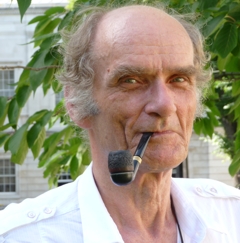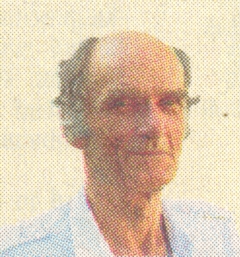The Times today has given s good showing for my comment piece. It gives the case against following the advice of the Pittilo report. It simply makes no sense to have government regulation of acupuncture, herbal medicine, traditional Chinese medicine until such time as there is evidence that they work. It makes even less sense to have BSc degrees in them. The Department of Health should have more sense that to use the Prince of Wales as its scientific advisor.
Let’s hope that the recent example set by the University of Central Lancashire is the start of trend for vice-chancellors to appreciate that running such degrees brings their universities into disrepute.
I can only apologise for the dreadful title that The Times’ sub-editors put on the piece, My original title was
A bad report for the vice chancellor
The Pittilo report to the Department of Health will endanger the public and corrupt universities. There is a better way.
I like that much better than “Regulate quack nedicine? I feel sick”.
But, oh dear, the picture that I sent them is on the left, but what appeared is on the right. Spot the difference.
 |
 |
Well now, at least, I can feel I have something in common with Isambard Kingdom Brunel.
Follow-up
It so happens that Professor Pittilo wrote a letter to Times Higher Education this week. I fear that it provided a yet more evidence that he hasn’t really quite got the hang of evidence.
The Lancashire Evening Post catches up with the UCLan story, two days after you read it here.
A reply from Professor Pittilo
This response to the op-ed of 29th August appeared as a letter
in the Times on Sept 2.
| Public health needs protection
Regulation of acupuncture and herbal medicine has been subject to much scrutiny Sir, Professor Colquhoun’s campaign to discredit our report (“Regulate quack medicine? I feel sick,” Aug 29) is in danger of placing public health at risk. He is entitled to challenge existing evidence for the effectiveness of complementary and alternative medicine (CAM) but fails to acknowledge the key recommendation from the steering group on the essential need to demonstrate efficacy, safety and quality assurance as a prerequisite for NHS funding. Professor Colquhoun dismisses CAM because of the absence of a rigorous scientific foundation and he asserts that to teach and practise it is unethical. Survey data consistently demonstrates very high demand for CAM with one report estimating that 22 million visits involving 10.6 per cent of the population in England alone occurred in 2008. This demand is one reason why his alternative model of trade law enforcement will not work. He may argue that these people are uncritical recipients of nonsense, but data from the Medicines and Healthcare products Regulatory Agency confirm that they are at significant risk from poor practice. It is essential that we protect the public by implementing statutory regulation alongside demanding evidence of efficacy. Professor Colquhoun’s resistance to the teaching of science to CAM practitioners will do little to help them to critically evaluate effectiveness. Professor Michael Pittilo Chair of the Department of Health Steering Group |
And Pittilo wrote in similar vein to Times Higher Education.
Science vital to health study28 August 2008 Your feature on some members of staff at the University of Central Lancashire attacking science degrees in complementary and alternative medicine (“Staff attack science degrees in alternative health”, 7 August) raises a number of concerns. It is up to any university, taking account of the expert views of staff and external peer review, to determine the appropriate title and award for any degree. It is encouraging to note from the feature that new courses The recent report to Ministers from the Department of Health Steering Group on the Statutory Regulation of Practitioners of Acupuncture, Herbal Medicine, Traditional Chinese Medicine and other Traditional Medicine There is no doubt that courses that provide a solid scientific foundation will greatly assist CAM practitioners in establishing evidence-based practice. It would be most unfortunate if the reported resistance to degree titles led to those wishing to practise acupuncture or herbal medicine receiving less hard science than they might have. To say that acupuncture and herbal medicine degrees have no academic justification appears arrogant in the extreme. Although it is certainly true that some content may not be scientific, this does not invalidate the legitimacy of these courses at degree level, a fact borne out by their successful validation in a number of universities. R. Michael Pittilo, Principal and vice-chancellor, The Robert Gordon University. |
This one got excellent responses from Kevin Smith (University of Abertay, Dundee), and from Peter J. Brophy (Professor of veterinary anatomy and cell biology University of Edinburgh). This was my comment to THE
There are a few very obvious responses to Professor Pittilo’s letter
For many alternative therapies the “philosophy” is simply incompatible with science. One obvious example is homeopathy. On Mondays and Wednesdays (science days) the students will be required to learn that response increases with dose. On Tuesdays and Thursdays will be taught the opposite. But for the exam they must reproduce only the latter (nonsensical) idea because their aim is to get a job as a homeopath. That makes nonsense of the idea of a university.
This seems to constitute a recognition that the evidence is still very inadequate. The time to start degrees, and the time to give official government recognition, is after the evidence is in, not before. What happens if you start degrees and then find that the subject is so much nonsense? Well, that has already happened in several areas of course. But the people who accredit the course and who act as external examiners just happen to be fervent believers in that nonsense, so all appears to be well (to bean counters anyway).
There is, as it happens, a great deal of evidence now about acupuncture, but the authors of the report do not seem to be aware of it. I recommend Barker Bausell’s book on the topic. If students are educated science, like what constitutes evidence, and our current understanding of words like “energy”, they would have to disavow the subject that there are supposed to training to practise
No, it is not a matter of arrogance, just a matter of careful attention to the evidence. Attention to evidence was notably absent in Prof Pittilo’s report, perhaps because his committee consisted entirely of people who earn their living from the subjects they were supposed to be assessing.
I have had the misfortune to have waded through a mound of such validation documents. The one thing they never consider is whether the treatment works. Sad to say, these validations are not worth the paper they are written on. |


You’ve been Magritted!
“Ceci n’est pas une pipe”
Nice article, David.
And the editing out of your “politically incorrect” smoking accoutrement is hilarious.
Perhaps you should enter for this once prestigious award ?!
I agree with the article to the extent that government should not be in the business of providing spurious legitimacy to unproven ‘treatments’. However, I think that there is a case for regulation to protect the public from harm. For example, you mention ayurvedic medicine (as approved by no less than Cherie Booth QC). Some of these medicines contain dangerous amounts of heavy metals. Regulation could actually prove useful if it prevented these things from being sold.
However, it seems clear that the regulatory framework is designed to allow the quacks to carry on as before, without bothering with all that tedious testing to find out whether their treatments work or are safe.
Well put David. I share wilsontown’s concerns but wonder whether a more rigorous application of existing consumer protection legislation might be the way to go, building on it as necessary.
I know what you mean, but I think it would be better if the money that was to have been spent on quangos was used to give Trading Standards people the cash to allow regular spot checks for contamination. Self-regulation will never work in contentious areas like these because it is riddled with vested interests.
“…give Trading Standards people the cash…”
I’d agree with that. After all, the MHRA, the FSA and Trading Standards are all limited in what they can achieve [in terms of policing dodgy remedy-pushers] by their budgets.
I wonder what Trading Standards could have done with all the cash that went to Prince Charles’s Foundation for Integrated Health for writing those dodgy guides (£37k) – and didn’t they get £900k or so for OfQuack too?
Hey, what happened to the tree?
“Well now, at least, I can feel I have something in common with Isambard Kingdom Brunel.”
The Royal Mint, on the other hand, left Brunel’s cigar intact.
We’ll just have to wait for your appearance on a £2 coin.
“Hey, what happened to the tree?”
Yes, but why is David’s top-hat missing from both pictures?!
Pittilo seems to lack clarity in understanding what a field of study requires to be a “Science”.
We are often at pains to point out to SCAMmers that science is not merely a set of facts but is a method for objectively answering questions. However, Pittilo is promoting the idea of SCAMmers teaching facts without method. They should be encouraged, he says, to leaven the teaching of SCAM’s loopy philosophy and each therapy’s particular habits and rules with a few nuggets of what he calls ‘hard science’, incidentally allowing the SCAMmers to perpetuate their habit of window-dressing their woo with a few sciency words, which many of them are very keen on. He implies that his idea of a SCAM+ course will let them go on subsequently to develop evidence-based practice. As David points out this rather presupposes that the evidence will support their beliefs, whereas the evidence is sufficient in many cases of SCAM therapy to say exactly the reverse.
Speaking as a vet, I might tell Pittilo that a horse is supposed to go in front of a cart and not vice versa.
Hi DC,
Not sure if you have seen this
T
[…] public links >> princecharles The Times, the Pittilo report (and damned sub-editors) First saved by dkamm | 2 days ago Prince Charles’ Skin-Care Line is Sold Out! First saved by […]
[…] gamma-minus Pittilo report (see also. The Times) recommended more degrees in alternative medicine, but there seems to be something of a trend […]
[…] But then came the Pittilo report, about which I wrote a commentary in the Times, and here, A very bad report: gamma minus for the vice-chancellor, and here. […]
[…] Acupuncture and Chinese Herbal Medicine are not subject to statutory regulation at present, so one would suppose that these degrees will close their doors too. However the infamous Pittilo report has proposed that they should become regulated by the Health Professions Council (HPC). The many problems of the Pittilo report have been documented here, in “A very bad report: gamma minus for the vice-chancellor“. There was also a high-profile critique of the report in The Times (and on this blog). […]
[…] I’ve written quite a lot about the Pittilo report already, in particular A very bad report: gamma minus for the vice-chancellor, and in The Times (see also the blog version).. […]
[…] The Times (blame subeditor for the horrid title), and some follow up on the Times piece […]
[…] by the disgraceful Pittilo report, about which I wrote a commentary in the Times (or free version here), and A very bad report: gamma minus for the vice-chancellor, […]